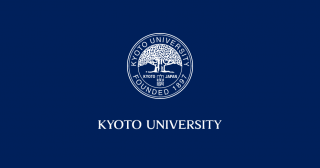A summer school program, "Development of Renewable Energy in ASEAN" was conducted in Vientiane, Laos, and Ho Chi Minh, Vietnam. This program was organized by the Human Security Development Educational Unit as part of Kyoto University's "Re-inventing Japan Project", and was conducted as an international exchange course in cooperation with Kyoto University's Organization for the Promotion of International Relations, through which participating students could earn two liberal arts credits under certain conditions. Fifteen students from the faculties of Engineering, Agriculture, Law, Economics, Literature, and Integrated Human Studies participated in this program.
The summer school was conducted for fifteen days, including the travel days; students were accompanied by Professor Ishihara of the Graduate School of Energy Science, Professor Ohgaki of the Institute of Advanced Energy, and Dr Fujieda, URA of ASEAN center. The school was conducted in the National University of Laos (NUOL) from August 12 to August 16 and Vietnam National University, Ho Chi Minh City - University of Technology (HCMUT) from 18 August to 24 August.
The students learned the fundamentals of energy technology including renewable energy (solar, wind, biomass, and hydro powers); the present conditions in which they are used; and the potential social, economic, political, and technical problems associated with expanding the utilization of renewable energy. Participants visited a hydropower plant and beer factory in Lao PDF, as well as the PV system (Intel), wind power station, and coal power station in Vietnam.
The students from Kyoto University and NUOL/HCMUT held group discussions throughout the program, and made group presentations in each country. They presented creative ideas for innovations including a "hybrid system from small hydro and solar for rural areas", and a "hybrid system using wind and solar energy for HCM".
In addition, the students learned about the history and culture of both Laos and southern Vietnam through forming close acquaintances with local students.
This program offered an invaluable experience to all participants. Students deepened their knowledge of renewable energy, and experienced the environment and society of Laos and Vietnam through on-site education. Although some of the Japanese students had never been abroad before, they quickly adapted to local society and enjoyed communicating with the local students.
We would like to express our tremendous gratitude to the two host universities, and in particular, to Professor Khamphone Nanthavong (NUOL) and Professor Le Chi Heip (HCMUT) for their support in organizing and conducting the program.

Lecture at NUOL

At the wind farm

Group presentation

Participants at HCMUT





